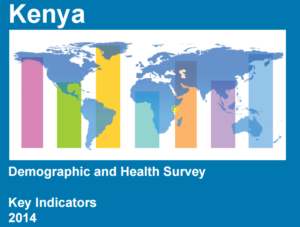Climate Change and Health Implications: A Deep Dive as Kenya Hosts the Africa Climate Summit

Introduction
As Kenya takes center stage in hosting the Africa Climate Summit from September 4th to 6th, 2023, it is imperative to delve into the intricate connection between health and climate change. The impact of climate change on public health is a global concern, and this summit will offer a unique opportunity to explore this relationship further. In this blog, we will discuss the multifaceted relationship between climate and health, drawing on scientific literature and research to provide a comprehensive understanding of the subject.
Climate change, the single largest health threat confronting humanity, is already exerting its adverse effects on our well-being. Health professionals across the globe are witnessing and responding to the health harms arising from this unfolding crisis. The scientific consensus, as outlined by the Intergovernmental Panel on Climate Change (IPCC), underscores the urgent need to limit global temperature rise to 1.5°C to avert catastrophic health impacts and prevent millions of climate change-related deaths.
The climate crisis does not discriminate, but its effects are disproportionately felt by those who contribute the least to its causes and have the fewest resources to protect themselves and their families—people living in low-income and disadvantaged countries and communities. This stark inequity in climate vulnerability threatens to undo five decades of progress in development, global health, and poverty reduction. Moreover, it exacerbates existing health disparities within and among populations, posing a grave challenge to the realization of Universal Health Coverage (UHC). [1]
Key facts
- Climate change affects the social and environmental determinants of health – clean air, safe drinking water, sufficient food and secure shelter.
- Between 2030 and 2050, climate change is expected to cause approximately 250 000 additional deaths per year, from malnutrition, malaria, diarrhoea and heat stress.
- The direct damage costs to health (i.e. excluding costs in health-determining sectors such as agriculture and water and sanitation), is estimated to be between USD 2-4 billion/year by 2030.
- Areas with weak health infrastructure – mostly in developing countries – will be the least able to cope without assistance to prepare and respond.
- Reducing emissions of greenhouse gases through better transport, food and energy-use choices can result in improved health, particularly through reduced air pollution.
Source (World Health Organization Facts Sheets)
The link between climate change and health is not merely theoretical; it manifests in various ways. Climate-sensitive health risks are already making their mark. Increasingly frequent extreme weather events, including heatwaves, storms, and floods, have led to fatalities and illnesses. Disruptions to food systems, a surge in diseases like zoonosis, and an increase in food-, water-, and vector-borne diseases are all on the rise. Additionally, the mental health of individuals is taking a hit due to these climate-related stressors- extreme weather events, displacement, and loss of livelihoods can lead to stress, anxiety, and depression
- Disruptions to Food Systems and Climate Change: Climate change can disrupt food systems in various ways, such as through extreme weather events like droughts, floods, and heatwaves. These disruptions can lead to reduced agricultural yields, crop failures, and livestock losses. When food production is compromised, it can result in food shortages and increased prices, affecting access to adequate nutrition.
- Zoonotic Diseases and Climate Change: Zoonotic diseases are infectious diseases that can be transmitted from animals to humans. Climate change can influence the distribution and behavior of wildlife and their associated pathogens. As temperatures rise and habitats change, the geographical range of disease-carrying vectors (like mosquitoes) can expand, bringing them into contact with new animal species and potentially increasing the risk of zoonotic disease transmission to humans.[2]
- Food-, Water-, and Vector-Borne Diseases and Climate Change: Climate change can create favorable conditions for the proliferation of disease vectors (such as mosquitoes and ticks) and the survival of pathogens in water and food sources. For example, rising temperatures can lead to the increased breeding of disease-carrying mosquitoes, expanding the geographic range of diseases like malaria and dengue fever. Additionally, extreme weather events, like heavy rainfall and flooding, can contaminate water sources, leading to outbreaks of waterborne diseases like cholera.
- Air Quality and Respiratory Health: Climate change can also influence air quality, which has direct implications for respiratory health. The burning of fossil fuels and industrial processes release pollutants into the atmosphere, contributing to air pollution. Poor air quality is associated with various respiratory conditions, including asthma, bronchitis, and chronic obstructive pulmonary disease (COPD). Moreover, wildfire smoke, which can be exacerbated by climate change, contains particulate matter and harmful gases that can severely impact respiratory health. [3]
- Mental Health and Climate Change: Climate change itself, with its associated impacts like extreme weather events, displacement, and loss of livelihoods, can directly affect mental health. These climate-related stressors can lead to feelings of helplessness, hopelessness, and trauma. Vulnerable populations, such as those living in areas prone to frequent climate-related disasters, are particularly at risk.[4]
Interconnections:
The interconnections between these aspects become evident when we consider that disruptions to food systems can lead to malnutrition and weakened immune systems, making individuals more vulnerable to infectious diseases like those transmitted by vectors or through contaminated food and water. Moreover, the impacts of climate change on disease vectors, such as increased mosquito breeding, can exacerbate the spread of vector-borne diseases, further straining healthcare systems and public health resources. Disruptions in food systems, the surge in zoonotic diseases, the increase in food-, water-, and vector-borne diseases, and air quality and respiratory health are all interconnected with changes in climate and environmental conditions. Addressing these interconnected challenges requires comprehensive strategies that consider both climate mitigation and adaptation measures, along with public health interventions.
Beyond these direct health impacts, climate change undermines the very social determinants that are essential for good health—livelihoods, social equality, and access to healthcare and support structures. Regrettably, it is the most vulnerable and marginalized groups who bear the brunt of these climate-sensitive health risks: women, children, ethnic minorities, impoverished communities, migrants or displaced persons, older populations, and those with underlying health conditions.
Conclusion
As Kenya hosts the Africa Climate Summit in September 2023, it is essential to recognize the intricate relationship between health and climate change. Climate change affects us all, and its consequences on public health are profound and multifaceted. In Kenya and beyond, understanding this connection and taking proactive measures to mitigate its impact is vital for the well-being of current and future generations. The Africa Climate Summit presents a unique opportunity to foster international cooperation and commitment to addressing this critical issue.
By acknowledging the interplay between climate and health, we can work towards a more sustainable and healthier future for all.
[1]World Health Organization (WHO). (2018). Climate change and health. Link ?
[2] Climate Change: Driving the Expansion of Zoonotic Diseases
[3] Sources of Greenhouse Gas Emissions
[4] Climate Change and Health: Impacts, Vulnerabilities, and Mitigation




